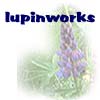English Quarterly
Valuing Non-Traditional Literacies
Eva Faryniarz
I am astounded by how our literacy experiences underwrite such
an enormous part of our lives and how these events are intermeshed
with everything we do. The very fact that we are social beings necessitates
that we find ways in which to communicate with each other. The ways
in which we do this constitutes the various literacies we acquire.
We cannot simply regard literacy as "the ability to read,
write and spell correctly" (Grant, 1986). Under this definition
Feruze, my mother-in-law, would certainly be considered illiterate.
An immigrant to Canada who was almost immediately widowed upon arrival,
she had some crucial choices to make about how she was going to
survive in her new environment. In fact she really had little choice-with
seven children to support and raise she needed to learn quickly
how to make sense of her world and how to get things done.
Feruze is a wonderful example of the "functionally" literate
in our society. She has developed specific literacies to help her
cope with her world. Although she does not read English magazines,
newspapers, or books she is able to navigate her way from one place
in the city to another without much difficulty, purchase groceries
in shops and supermarkets, and take care of her bills and finances.
One day, as I sat in the Halifax Shopping Centre food court, I
suddenly thought of Feruze. I observed people considering menus,
making choices, discussing various things and carrying on conversations,
ordering a wide variety of items, and most importantly attending
to a multitude of signs meant to direct attention and let people
know what to do and how to do it. I imagined Feruze there, picking
up coffee and a bran muffin (her favorite), then making her way
to a table and spending some time people watching. Language and
literacy was everywhere around me yet there was no way of telling
which individuals here could "read, write and spell correctly."
What was, however, immediately apparent was who was new to this
environment. These were the individuals who were attending to the
directional messages which bombarded them:
- "exit" "no smoking"
- arrows indicating direction
- "escalator up" "order here."
As they paused to ascertain the appropriateness of their actions,
they attended to environmental signs, asked questions of people
nearby, and observed what others were doing to achieve the same
ends. By using these coping strategies, the individuals who were
unfamiliar with this environment came to know the culture of this
place and develop the specific literacy needed to make sense of
the situation and function within it.
Smith (1989) writes about the development of ability to cope as
a consequence of engagement in meaningful activities. Perhaps the
most meaningful activities which we engage in are those in which
we seek food, drink, shelter and companionship. Seen in this light,
individuals in the food court were propelled to make sense of their
surroundings in order to fulfill some basic needs. Feruze was similarly
propelled to "read" a new culture and develop the abilities
necessary to make her way through her everyday experiences.
Seeing the link between Feruze and the food court has caused me
to reflect on the experiences of one of my students. Frankie began
the year firmly convinced he was neither a reader nor a writer.
He would simply stop as soon as he reached a word he was unfamiliar
with and wait. Frankie's frustrations, coupled with his clear picture
of what others could manage to do, challenged his self-esteem and
motivation to learn. Since his behaviour mirrored his frustration
and feelings of inadequacy Frankie's behaviour challenged the patience
of many of the teachers and other students at the school.
Interestingly, Frankie had no difficulty getting around the school,
his neighbourhood and the playground. He was a Nintendo whiz, loved
games of all sorts, and had done quite a bit of traveling. He had
incorporated a wide range of skills into his coping repertoire.
Although Frankie finished the school year having made tremendous
gains in self-confidence and believing in himself as a reader and
a writer, it is clear to me that I did not value adequately the
range and extent of the literacies Frankie possessed. What teachable
moments passed unnoticed, I wonder?
Next year I will have my eyes and ears alerted to a wider range
of possible literacy experiences. Perhaps the responses "How
did you come to know that?" and "Tell me about that,"
will spring more readily to mind. I know I'll be sure those magazines
and catalogues I've kept tucked away in the corner will be more
prominently displayed. Rather than just having the kids observe
certain phenomena and proceed with the various activities that stem
from them I might try issuing specific invitations for them to record
some of their observations. I'll be careful to make sure our reading
and writing mirrors the reasons we use these processes outside the
classroom so that the whole classroom experience is more real and
more valuable for everyone involved.
Grant, A. N. (1986) Defining literacy: Common myths and alternative
readings. Australian Review of Applied Linguistics. 9(2): 1-22.
Smith, F. (1989) Overselling literacy. Phi Delta Kappan, January:
353-359.
Eva Farnyiarz teaches at St. Hillary's Elementary School in Mississauga,
Ontario.
[ EQ Index ]
|

